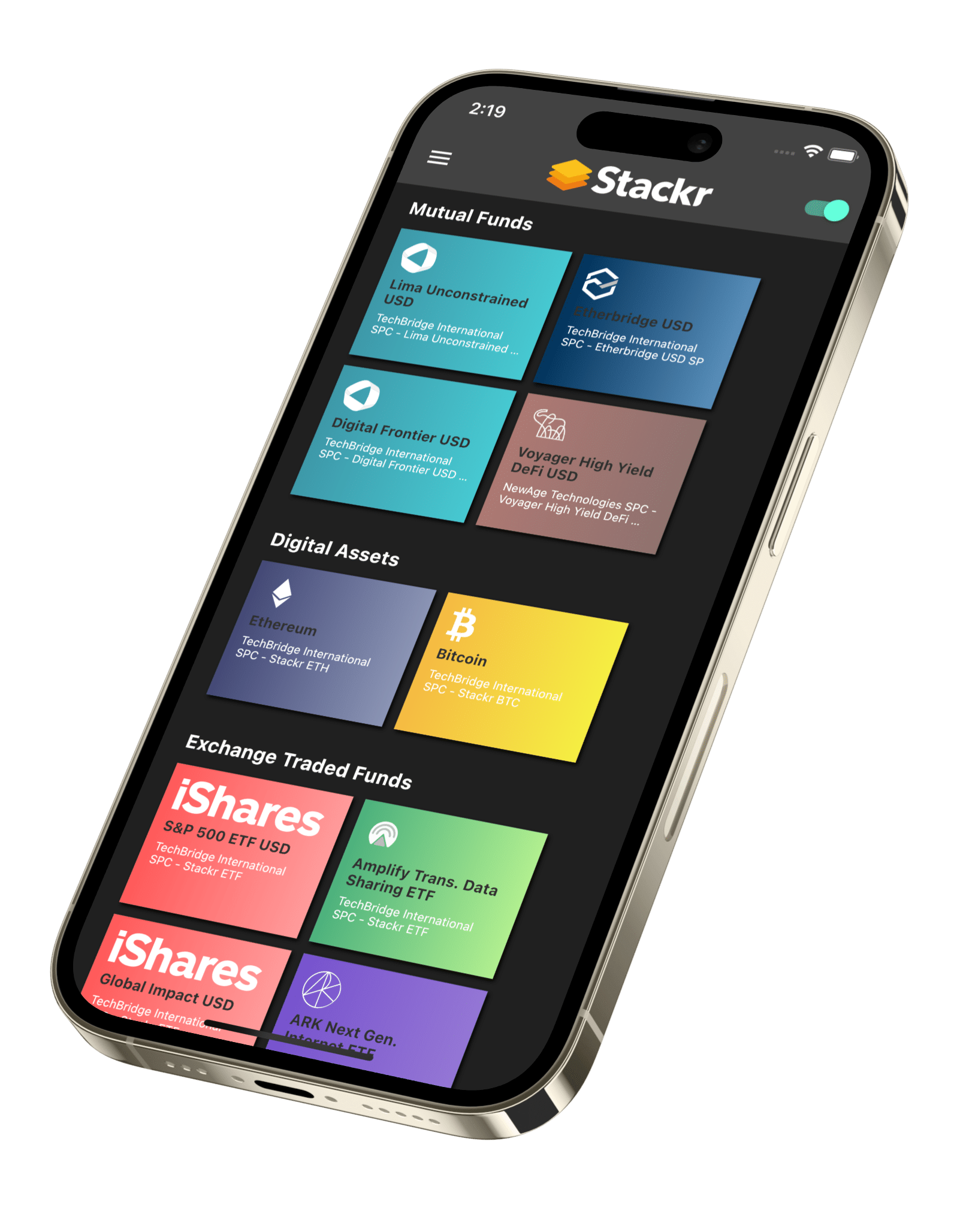INVESTING
Stackr's ETF Advantage: Exploring High-Performing Options for Wealth Building
Discover Stackr’s Expert-Crafted Portfolios: Incorporating Exchange-Traded Funds (ETFs) – which delivers the Advantages of Diversification, Cost Effectiveness, and Potential Tax Optimization
What is an ETF?
ETFs, known as exchange-traded funds, share similarities with mutual funds as they both pool investments into a collection of securities like stocks, bonds, and diverse assets. Yet, in contrast to mutual funds, ETFs offer the flexibility of stock-like trading, being tradable during market hours.
By merging the broad risk-spreading advantages of mutual funds with the convenience of stock trading, ETFs offer investors a straightforward avenue to engage with global financial markets.


Benefits of an ETF?
ETFs offer distinct advantages compared to traditional open-end funds, with four key benefits standing out: trading flexibility, portfolio diversification and risk management, lower costs, and tax advantages.
Trading flexibility is a defining feature of ETFs. Unlike mutual funds that are traded once per day after market hours, ETFs can be bought and sold during market hours. This real-time pricing empowers investors to instantly gauge their investment’s value and make swift decisions. The convenience of ETF trading facilitates efficient portfolio management, enabling quick allocation adjustments across different asset classes such as stocks, bonds, and commodities.
Portfolio diversification and risk management are greatly enhanced by ETFs. Investors seeking exposure to specific sectors or markets can utilize ETFs to access diverse asset categories easily. ETFs cover an extensive array of asset classes, including commodities and currencies, offering unique investment strategies. Additionally, investors can use ETFs to manage risk by shorting industry-specific ETFs or using inverse ETFs to hedge against market downturns.
Lower costs are a significant advantage of ETFs. Their operational efficiency is partly due to reduced administrative overhead and service-related expenses, which are often passed on to brokerage firms. Unlike traditional open-end funds that distribute statements to individual investors, ETFs streamline reporting to authorized participants, minimizing administrative burdens. The absence of mutual fund redemption fees also benefits ETF investors, as they can avoid additional costs associated with short-term trading.
Tax benefits are another compelling aspect of ETFs. ETFs generally incur fewer capital gains taxes compared to mutual funds. Capital gains tax on ETFs is realized only upon an investor’s sale, while mutual funds distribute capital gains taxes over the investment’s life. Although ETF dividends have distinct tax classifications—qualified and unqualified—they often offer tax advantages. Exchange-traded notes (ETNs), a subset of ETFs, provide an alternative structure that avoids dividend taxation
INVESTING
Why invest with Stackr?
When selecting an ETF, it begins with grasping your investment objectives and assessing if the chosen ETF aligns with those goals. Also, when investing through Stackr, you should consider these benefits:
Flexibility
Offers flexible and affordable savings solution
Regulated
Regulated environment ensures investor protection
Beneficiary
The ability to nominate beneficiaries to inherit assets without incurring high costs
You can also invest in
Embrace the Future of Finance:
Shaping the future of savings and
investment strategies.

